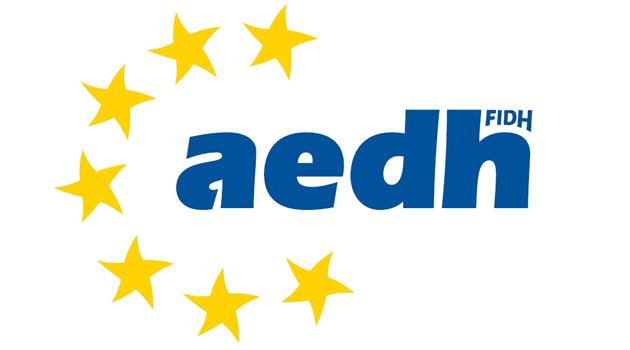European Association for the Defence of Human Rights: Europe, quo vadis?

Is there a migrant and/or refugee crisis? Or is there a European crisis? The European Association for the Defence of Human Rights (AEDH) considers that this issue has implications for the future of the European Union, given the powerful consequences of member states’ decisions for the rights of migrants, whether they are fleeing war, repression, poverty or death. While thousands of human beings – men, women and children – have put their faith in Europe in order to survive and rebuild their lives, the governments of EU countries have responded with, at best, a limited form of generosity and, at worst, national preference, violence, xenophobia and racism. The Council of Ministers’ failure to understand that global instability cannot be solved with barriers or walls has led to meetings that reveal serious flaws in European integration. Despite claiming to uphold the rule of law, it has shown itself to be fearful, poisoned by suspicion and even hatred of outsiders. Some governments have spread the illusion of an illegal and organised invasion to justify the use of violence, with potentially fatal consequences.
The decision made by the German and Austrian governments to welcome a limited and evenly distributed number of people differs to the decisions made by the Hungarian, Slovakian and Spanish governments (Hungary refusing any settlement, Slovakia only accepting Christians, and Spain refusing to do more than what it already does in Ceuta and Melilla to protect Europe). France has committed to accepting a mere 24,000 people over two years. The United Kingdom has tentatively suggested it could possibly take in a few hundred. On the European level, the right to asylum has been superseded by practical distribution considerations, with some countries accepting several thousand refugees in theory and others refusing any compulsory distribution or quotas (Hungary, Slovakia, the Czech Republic, etc.). Given these differences, setting limits is now considered a reasonable and realistic option: limiting the impact on the country; limiting the people accepted to refugees; and limiting the social categories to which refugees may belong. If we follow this reasoning, the worst is no doubt yet to come, with the idea of centres being set up in peripheral countries to sort the “good” refugees from the “bad” migrants, who would be sent back to where they came from – countries on the so-called “safe countries” list.
While there is indeed a crisis, it is that of global instability and the distribution of wealth. If threatened people wish to seek somewhere to live in safety in Europe, then that is because Europe’s wealth guarantees opportunities unavailable elsewhere. The world as a whole has not yet finished “paying” the price for the criminal war in Iraq; the disastrous situation in Afghanistan; the acceptance of the dictatorships running Eritrea, Sudan, Syria and other countries, particularly in Africa and the Middle East; the illegal occupation of Palestine; and poverty and destitution. If we fail to ask questions, there will always be just as many people pushed into exile; there will be ever more confrontation over what needs to be built: bridges, or walls.
Europe’s civil society has intervened vigorously, but movement of solidarity is fragile. AEDH calls for a collective and political defence of rights to be based on this fundamental humanitarian and individual solidarity. AEDH calls for the order of priorities to be reversed so that people are received unconditionally, in line with regulatory procedures that guarantee the same rights for all. The Dublin Regulation has caused too much damage, and must be repealed. Lastly, AEDH calls for the immediate implementation of the directive on temporary protection, which the EU is refusing to effect, even though the text that was adopted would have provided a framework for the resolution of the so called “migrant crisis”, which is, in fact, a European crisis.